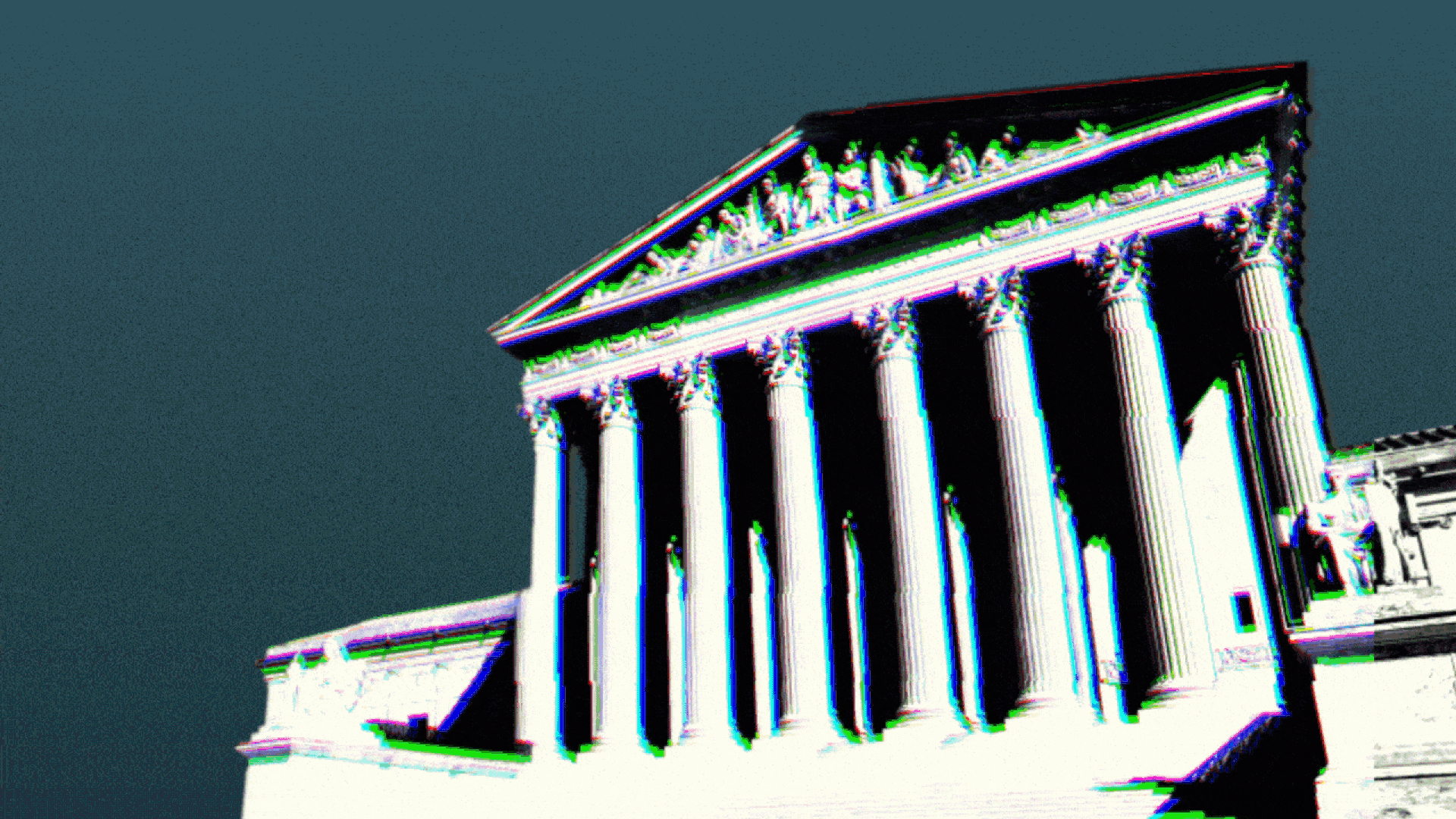Illustration: Brendan Lynch/Axios
The firestorm over Large Tech and content moderation is coming to a head at the Supreme Court — but some industry experts worry it’s a task the court docket merely is not geared up to do nicely.
Why it issues: The court has historically not been great at grappling with new technological know-how. As it dives into the political fight over social-media algorithms, you will find a serious concern that the justices could conclude up building additional controversies than they fix.
Driving the information: The court is set to hear arguments this week in two situations involving Area 230, the federal law that states tech platforms are not liable for what their customers select to publish.
- Both lawsuits — a person against Google, and just one versus Twitter — argue that although tech corporations may not be liable for the content of users’ posts, they must be liable for what their algorithms market or advise.
- The implications of these types of a choice may well not be absolutely obvious for years, even to the engineers who work on those solutions.
“The courtroom may possibly imagine it is really doing a single detail and it can be actually executing one thing incredibly various,” claimed Evelyn Douek, a legislation professor at Stanford who specializes in tech legislation. “It’s ill-matched to the issue.”
The concern in the tech business is not just that the court could possibly rule against them — every social gathering in a Supreme Courtroom situation has to worry about that — but that a Supreme Courtroom ruling limiting Portion 230, as opposed to a regulation restricting Portion 230, could trigger unforeseen issues down the street that even the law’s critics could not necessarily be satisfied about.
- Even if Google and Twitter win, there is a real looking circumstance in which “the court even now suggests problematic things … that stop up weaponizing the lawful program in opposition to court docket moderation,” Berin Szóka, president of libertarian-leaning think tank TechFreedom, claimed during a roundtable with reporters previous 7 days.
- “There is a valid concern that the Court docket could simply just not understand nor respect the specialized complexities that travel the modern net,” wrote Jess Miers, a attorney for the professional-tech Chamber of Development.
Context: The Supreme Court is an inherently sluggish-moving institution that attempts to resolve complications predominantly by hunting for one wide basic principle that can final eternally. And that is simply hard to square with advanced, evolving technologies.
- That stress has been primarily obvious in conditions involving privacy and legislation enforcement.
- All the way again in 1979, the court docket ruled that police really don’t need to have a warrant to acquire a list of each individual mobile phone amount you’ve known as. For the reason that you voluntarily turned that information about to a 3rd party (the cellphone business), the court docket claimed, you have no affordable expectation that it would be non-public.
- That could possibly have seemed in 1979 like a pretty slim ruling about landline telephones. But the courtroom has struggled to adapt its “3rd-get together doctrine” to an period in which third parties have obtain to all of our correspondence, search queries and even our bodily movements. If nothing at all your mobile phone can track is non-public, then what is?
The Area 230 scenarios current a entire diverse established of concerns, and they’re asking the court docket to interpret a statute passed by Congress, not the scope of a civil suitable.
- But it is not that tough to see how 9 legal professionals in a area in 2023 might not foresee the upcoming of written content algorithms, just as 9 lawyers in a home in 1979 did not know the scope of the precedent they finished up location.
- ‘Even briefs in this circumstance disagree, for instance, about how a prospective ruling from Google and Twitter ought to use to search engines — an additional procedure of using algorithms to supply distinct information.
Facts: The match towards Google was submitted by the loved ones of a guy killed in an ISIS assault. It’s not very clear no matter if the perpetrator of that assault watched ISIS’ YouTube movies, but the relatives states Google is responsible for the patterns that direct men and women to unsafe films.
Between the lines: The Supreme Court took up these circumstances even even though there hasn’t been much disagreement in decrease courts about how to implement Segment 230 — those people courts have sided with tech firms.
- That’s widely witnessed as a indicator that at least some of the conservative justices want to roll back again the provision.
- Justice Clarence Thomas has written critically about the provision various situations — and Thomas’ unique hobbyhorses are significantly locating their way into the court’s mainstream.
- “There seems to be an appetite to do a little something,” Douek stated.
A ruling is expected by summertime.

